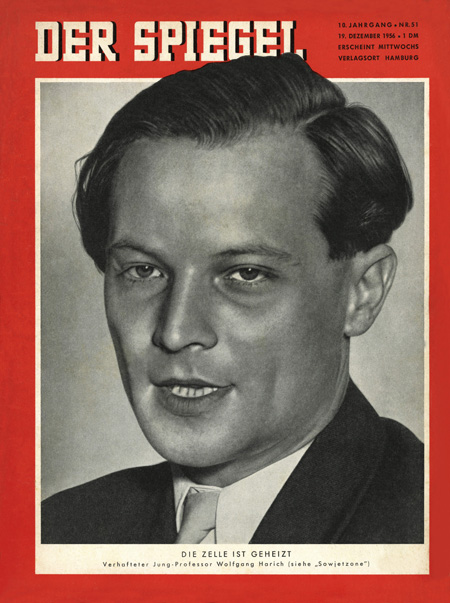Source

Source: © Der Spiegel
Inspired and emboldened by de-Stalinzation and the thaw following the 20th Congress of the Communist Party of the Soviet Union in February 1956, many Marxist intellectuals in the GDR believed that the time was ripe to initiate a public debate on reforms in their country. In November 1956, Wolfgang Harich, editor-in-chief of the Deutsche Zeitschrift für Philosophie, philosophy lecturer at Humboldt University of Berlin, and chief editor at Aufbau Verlag, wrote the “Platform for the Special German Path to Socialism” [“Plattform für den besonderen deutschen Weg zum Sozialismus”] and sent it to members of the SED Politburo and Central Committee. Although Harich emphatically embraced “democratic centralism” and Socialist property relations, he demanded that the state and the SED be fundamentally democratized, primarily through free elections, so that a humane and truly democratic socialism could emerge. Since the SED regime wanted to clamp down on such ideas and on intellectuals as a whole, it had Harich arrested in November 1956 together with friends and colleagues with whom he had discussed the text. Denounced as the “subversive Harich group,” the arrested men, who included Werner Janka, head of Aufbau Verlag, and the writers Gustav Just and Erich Loest, were given long prison sentences in March and July 1957. Harich was sentenced to ten years imprisonment but was released early after an amnesty in December 1964. This 1956 cover from Der Spiegel uses Harich's example to illustrate the political repression in the East German regime.

Source: © Der Spiegel